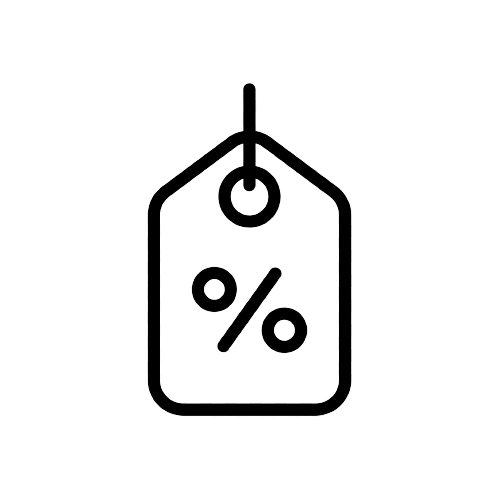Whether from symptoms or treatment side effects, cancer can have a major impact on a person’s body. This has a ripple effect on body image, a person’s perception of their physical self and the thoughts and feelings related to it. In this Q&A, AWE explores the interplay between body image and cancer with Lauren Chatalian, MSW, LCSW, Women and Children’s Program Manager at CancerCare.
Why is body image important?
Our bodies are much more than just the way we move through the world. The body is an amazing thing: it lets us run, eat, travel, hug, build, think and achieve amazing things. Our physical selves can be a huge part of our identity based on how we present ourselves to the world and how others perceive us. Ultimately, body image is not just about the way we look—it’s about the way we feel.
How does breast cancer impact the body and body image?
For some, body image may be impacted as soon as they are diagnosed or as soon as they feel a lump in their breast. These changes can immediately cause a person to feel “off” or not quite themselves. They may also feel a sense of guilt or betrayal, as though their cancer means there is something “wrong” with them or that their body is doing something “bad.” Those feelings are common and understandable: we always want to maintain trust and confidence in our bodies and in ourselves, so it can be challenging when your body does something you don’t want it to be doing. This holds true for any condition that affects a person physically.
I remind clients that being diagnosed with cancer is largely out of a person’s control and that the diagnosis is not anyone’s fault. It can be helpful to refocus those thoughts, thinking of the cancer as something different in the body as opposed to something wrong. This subtle shift moves away from the idea that the body is at fault. Instead, a person can think of the cancer as something that needs to be removed so they can heal and be their healthiest self.

Does every person with cancer lose their hair?
The cancer experience is different for everyone. Not everyone has the same symptoms, side effects, or emotional changes, and everyone may experience physical changes on a different timeline. Speaking generally, those living with breast cancer may experience hair loss and weight changes due to treatment. Hormone therapy, targeted cancer drugs and immunotherapy are more likely to cause hair thinning, while chemotherapy commonly causes hair loss. Hair loss may also occur during radiation treatment, if an area with hair is being radiated. People diagnosed with cancer can ask their medical team whether their treatment may cause hair loss and when.
What happens after hair loss?
Those who lose their hair may choose to wear a wig, head scarf, hat, or nothing at all. The most important thing is what makes the person feel most comfortable. CancerCare offers a free wig clinic for clients in New York and New Jersey. These visits are currently taking place virtually over video. When we are able to offer in-person support again, visitors can receive personalized fittings, free products to build confidence, and psychosocial support from an oncology social worker at our New York City and Paramus, New Jersey, locations. Outside of New York and New Jersey, local referrals and information may be available from a patient’s care team.
Something that pop culture doesn’t always depict is that hair loss can affect hair everywhere, not just on the head. Eyebrows and eyelashes may also be lost, and people living with cancer can explore eyebrow pencils, artificial eyelashes, or other products if it helps them feel more like themselves. CancerCare has partnered with Sephora in the past on their Brave Beauty in the Face of Cancer classes. These workshops help people learn more about cosmetic use and skin care during treatment, as the texture or needs of a person’s skin may change during and after treatment too.

What about mastectomies?
A mastectomy refers to the surgical removal of a breast. Many people are familiar with Angelina Jolie’s precautionary double mastectomy, in which she removed both breasts due to her genetic risk of breast cancer. Some may undergo surgery to remove part of a breast, called a lumpectomy. The treating health care team will help guide people living with cancer to figure out whether surgery is the best option, and if so, what type.
How does breast removal affect people living with cancer?
Beyond the physical recovery of a major surgery, having a mastectomy or lumpectomy can be an emotionally distressing experience—sometimes even more so than hair loss. It is a major loss to have any part of your body removed, but for those who identify as female, breasts are tied to ideas of motherhood, fertility and femininity. Losing that part of the body has a huge impact on how a person sees themselves.
When I speak with clients who are having trouble coping with the loss of their breast(s), I encourage them to let themselves truly mourn. It is normal for a person to grieve the body they were accustomed to, and I always acknowledge that adjusting to a new body is not easy. I also discuss the idea of a complex, multi-faceted identity and how other attributes they love and appreciate about themselves are a major part of their sense of self.
Some people who have a mastectomy or lumpectomy will also choose to have breast reconstruction surgery, sometimes possible at the same time as the removal, to maintain the appearance of a breast or breasts. Others may use a breast prosthesis, an artificial breast form that is worn in a bra or under clothing. Still others may choose to “go flat” entirely, opting out of reconstruction and prosthesis use. As with hair loss, the most important thing is for a person to do what makes them feel their most comfortable and confident.
In addition to CancerCare’s wig clinic, we are also doing virtual breast prostheses fittings for clients in New York. For those who prefer to be fitted in person, our social workers may be able to provide referrals to local stores and clinics across the country.

How can I support a friend or loved one who has experienced physical changes due to cancer?
This can vary from person to person. Some may want to acknowledge the changes, and others may be hesitant to talk about it. One easy way to boost a person’s confidence is to compliment them on something that they chose. For example, “I love your headscarf. That color looks amazing on you!” or “Very cute hat! It goes perfectly with your earrings.” Statements like these are a great way to focus on something within the person’s control.
CancerCare is the leading, national organization providing free programs and services to anyone impacted by cancer, including caregivers and the bereaved. In addition to the wig and prosthesis clinic, CancerCare offers case management, support groups, counseling, community programs, educational resources and financial and co-payment assistance. Visit cancercare.org to learn more about CancerCare’s free services, or call their toll-free Hopeline at 800-813-HOPE (4673) to speak with an oncology social worker, register for programs and obtain referrals to other local and national resources.













